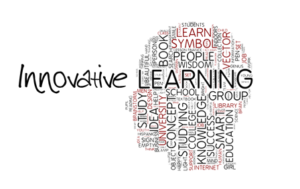Yesterday at Entera offices, we held an envisioning party. We invited in big picture thinkers from varying industries and picked their brains about a particular project on which we are embarking.
It was an encouraging day because they affirmed our ideas, challenged our assumptions and were optimistic about the project. I am grateful for their astute observations, but I left with a bit of apprehension. The reason for this is I have some work to do: there are some mental assumptions that I have that need to change. This is the true cost of innovation: we have to change, adapt, learn, re-learn, unlearn in order to move forward and best serve the marketplace.
Alvin Toffler said it best: “The illiterate of the 21st century will not be those who cannot read and write, but those who cannot learn, unlearn, and relearn.”
Learning something new, for most people, is an enjoyable experience. But, unlearning is a different matter: it is a more arduous process. What is unlearning? It is the process of discarding something from your thought patterns and replacing with new patterns. It could be an attitude, a habit or a way of behaving.
This adaptive lifestyle is all around us. Adult education experts estimate that up to 40% of what students are learning today will be obsolete a decade from now when they will be working in jobs that have yet to be created.
In the workplace, many executives were taught that leading in an autocratic, top-down manner But when faced with increasing complexity and constant change, they realize this way is no longer effective. Today’s leaders must be more creative, agile and risk-takers. This is a huge shift and they must unlearn their old ways in order to develop new beliefs, attitudes and behaviors. Easier said than done.
Another example are employees who have worked with a company for a long time. Employees need to unlearn in order to move forward alongside their company so they can move ahead, work more effectively and further the company’s mission.
One’s ability to adapt, change and learn new things is a necessary skill is crucial to succeed in today’s workplace. I was taught if you just work hard and play by the rules you’ll get ahead and have a good life. It’s much different today: you must be in a constant state of adaptation – continually unlearning and relearning; continually questioning assumptions about how things work, challenging old paradigms.
But this process has great upsides: the life-long learner is always fully alive, actively growing, more creative and open to new possibilities. A great way to approach life.


Recent Comments